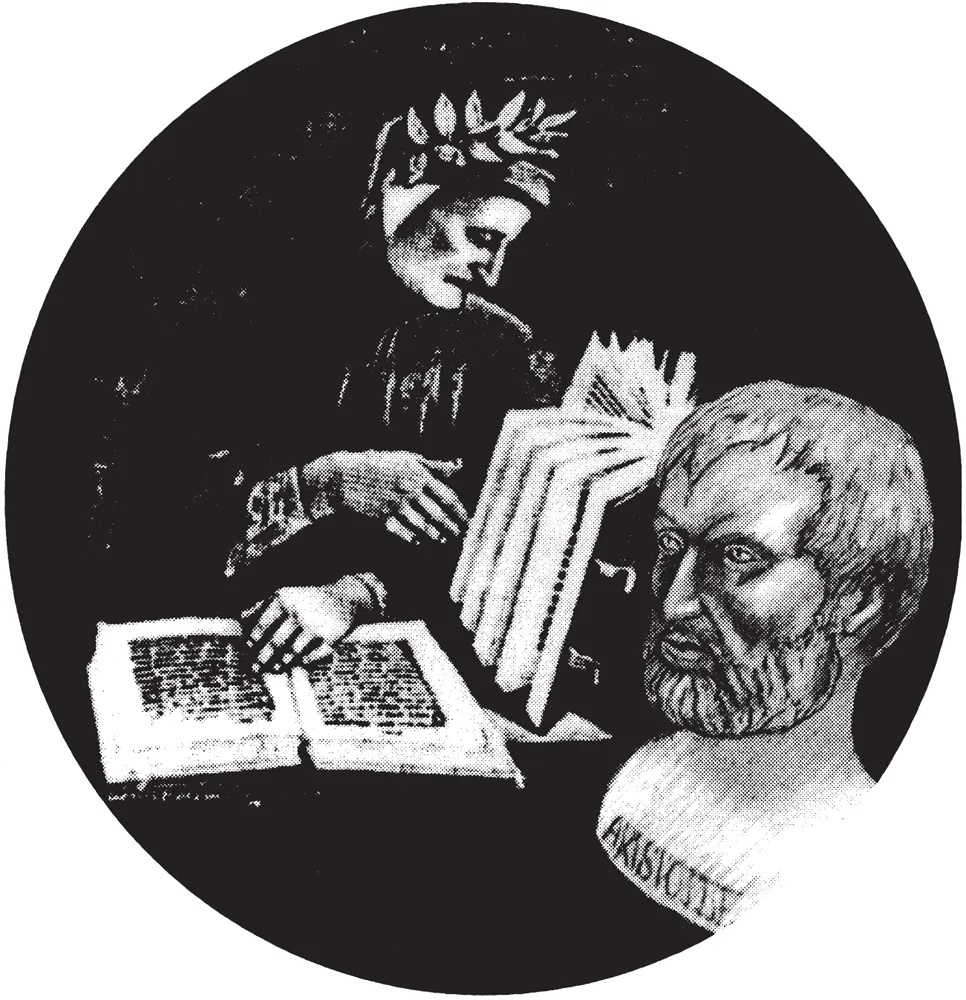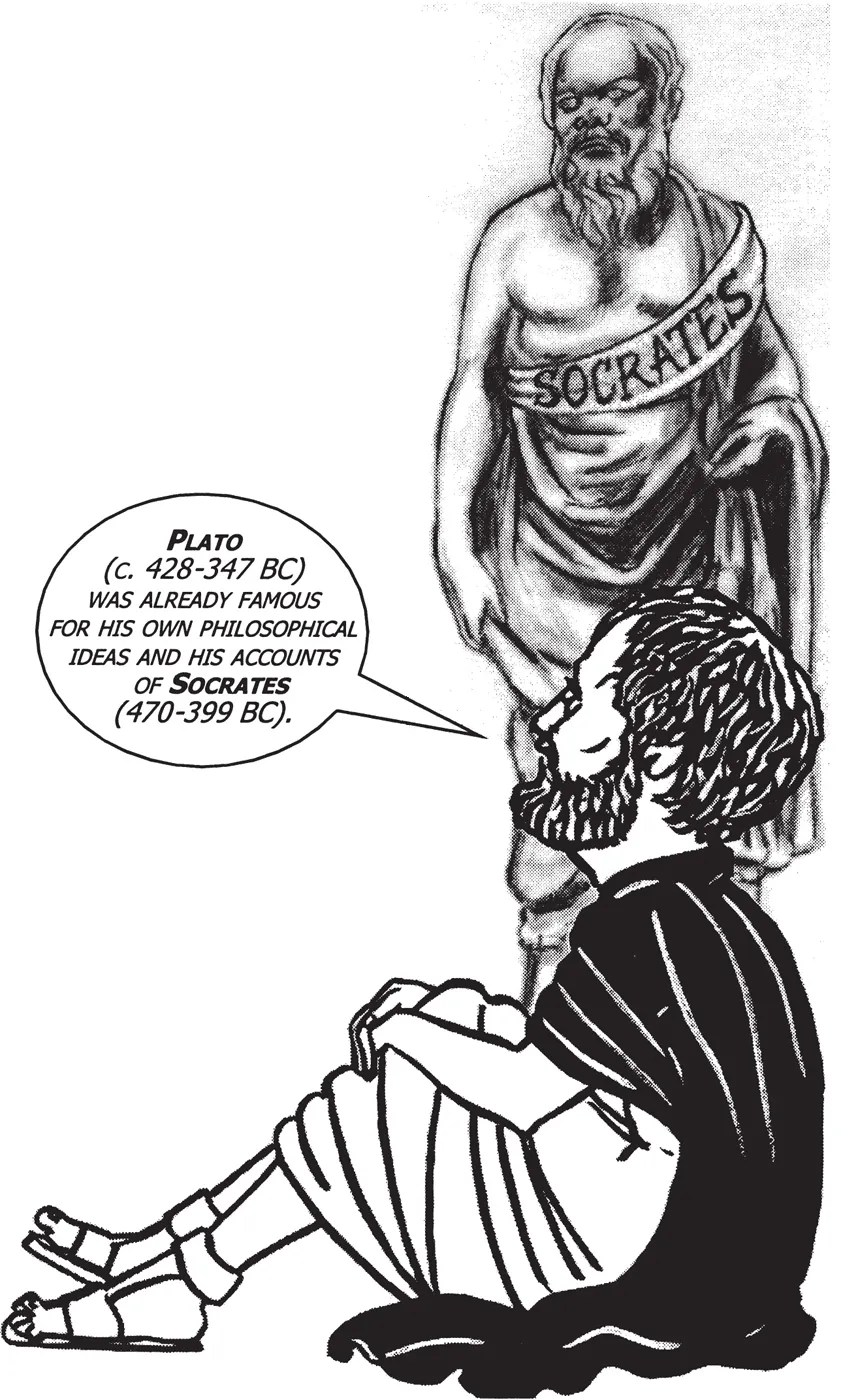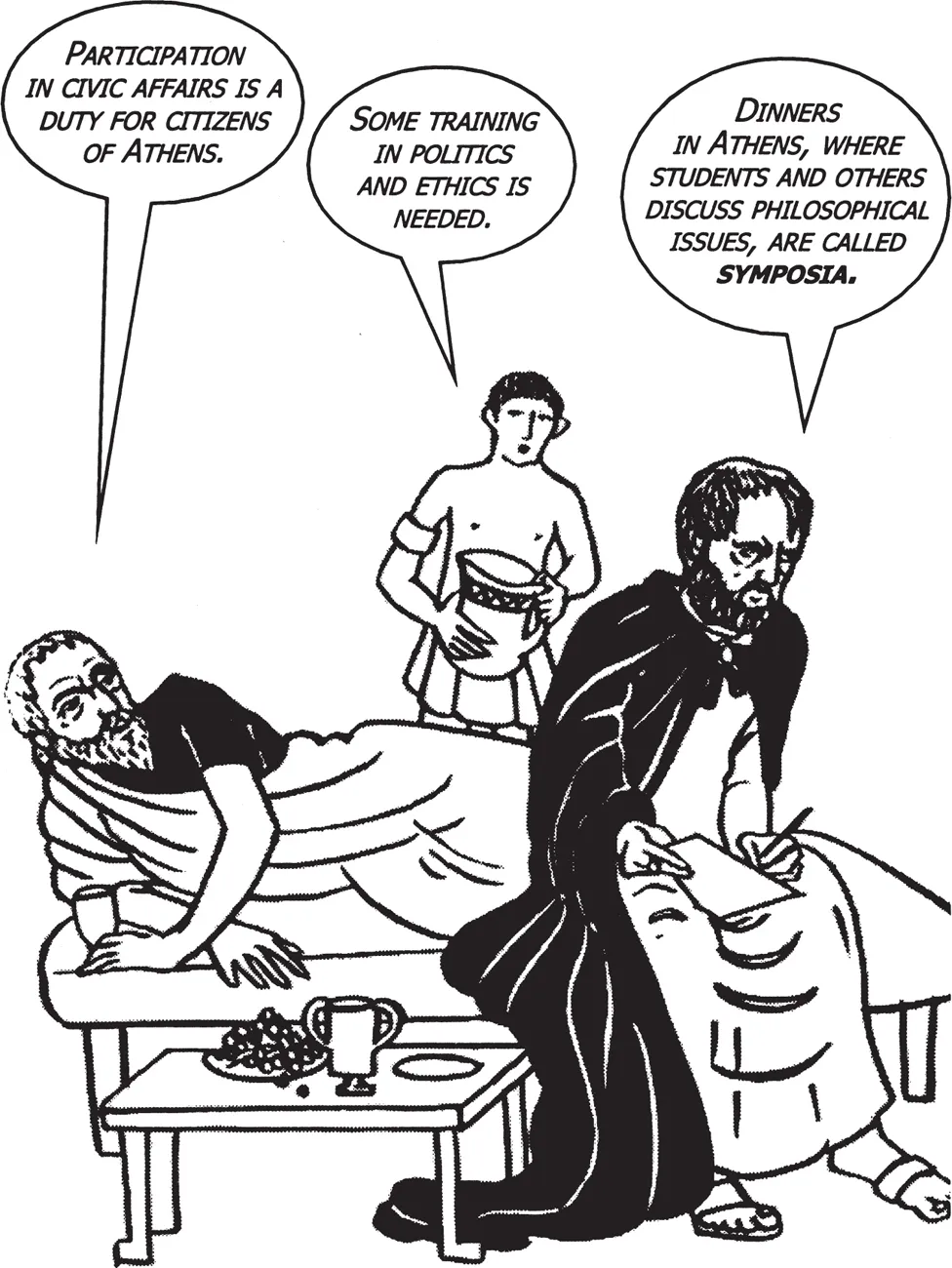
eBook - ePub
Introducing Aristotle
A Graphic Guide
Rupert Woodfin, Judy Groves
This is a test
Compartir libro
- 176 páginas
- English
- ePUB (apto para móviles)
- Disponible en iOS y Android
eBook - ePub
Introducing Aristotle
A Graphic Guide
Rupert Woodfin, Judy Groves
Detalles del libro
Vista previa del libro
Índice
Citas
Información del libro
"Introducing Aristotle" guides the reader through an explosion of theories, from the establishment of systematic logic to the earliest rules of science. Aristotle's authority extended beyond his own lifetime to influence fundamentally Islamic philosophy and medieval scholasticism. For fifteen centuries, he remained the paradigm of knowledge itself. But can Aristotelian realism still be used to underpin our conception of the world today?
Preguntas frecuentes
¿Cómo cancelo mi suscripción?
¿Cómo descargo los libros?
Por el momento, todos nuestros libros ePub adaptables a dispositivos móviles se pueden descargar a través de la aplicación. La mayor parte de nuestros PDF también se puede descargar y ya estamos trabajando para que el resto también sea descargable. Obtén más información aquí.
¿En qué se diferencian los planes de precios?
Ambos planes te permiten acceder por completo a la biblioteca y a todas las funciones de Perlego. Las únicas diferencias son el precio y el período de suscripción: con el plan anual ahorrarás en torno a un 30 % en comparación con 12 meses de un plan mensual.
¿Qué es Perlego?
Somos un servicio de suscripción de libros de texto en línea que te permite acceder a toda una biblioteca en línea por menos de lo que cuesta un libro al mes. Con más de un millón de libros sobre más de 1000 categorías, ¡tenemos todo lo que necesitas! Obtén más información aquí.
¿Perlego ofrece la función de texto a voz?
Busca el símbolo de lectura en voz alta en tu próximo libro para ver si puedes escucharlo. La herramienta de lectura en voz alta lee el texto en voz alta por ti, resaltando el texto a medida que se lee. Puedes pausarla, acelerarla y ralentizarla. Obtén más información aquí.
¿Es Introducing Aristotle un PDF/ePUB en línea?
Sí, puedes acceder a Introducing Aristotle de Rupert Woodfin, Judy Groves en formato PDF o ePUB, así como a otros libros populares de Philosophy y Ancient & Classical Philosophy. Tenemos más de un millón de libros disponibles en nuestro catálogo para que explores.
Información
Categoría
PhilosophyCategoría
Ancient & Classical PhilosophyA Universal Mind
The Master of those who know.
Dante Alighieri (1265–1321), poet of The Divine Comedy
Dante Alighieri (1265–1321), poet of The Divine Comedy

Aristotle has been described as the most intelligent person who ever lived. He had an impact on human culture, understanding and knowledge that is difficult to match. Many of the ways in which we think can be traced back to him and his work, all too often unacknowledged today. In particular, the rational, scientific and technological culture that pervades much of the Western world owes more to him than to anyone else. He also made major contributions to the development of ethics, psychology, biology, politics and our appreciation of literature.
Aristotle’s Family Background
From a distance of two and a half thousand years, Aristotle remains a shadowy figure.

I WAS BORN IN THE SMALL TOWN OF STAGIRA, A GREEK COLONY IN THRACE, IN 384 BC. MY FATHER WAS NICOMACHUS, THE COURT DOCTOR TO KING AMYNTAS OF MACEDONIA.
It may be that the family had acted in this role for some generations of Macedonian Kings. The medical background is also significant. Medicine, even then, would have depended on acute observation, and this characterizes all of Aristotle’s work.
It is not known whether Aristotle practised medicine during his lifetime, but he did say later, rather pompously …

A MAN IS ADEQUATELY EDUCATED IF HE KNOWS THE THEORY OF MEDICINE BUT DOES NOT HAVE THE PRACTICAL EXPERIENCE.
He probably had a prosperous childhood, in a comfortable rather than magnificent court, where a high priority was put on combining theoretical wisdom with pragmatic action.
Education in Athens
Aristotle lost both his parents while still a youth and passed into the care of Proxenus, who was probably a relative of his father. His intelligence must have been evident, because at seventeen he was sent to complete his education in Athens. The Thracian scholars must have become exasperated with a brilliant pupil for whom they could do nothing more. Shortly after he arrived in Athens, he joined Plato’s Academy.
Plato’s reputation attracted students and scholars from all over the eastern Mediterranean, as well as the sons of prosperous and powerful Athenians.

PLATO (c. 428-347 BC) WAS ALREADY FAMOUS FOR HIS OWN PHILOSOPHICAL IDEAS AND HIS ACCOUNTS OF SOCRATES (470-399 BC).
The Symposium
Plato encouraged penetrating discussions of obscure and difficult topics, but also taught the youth of Athens as a preparation for their adult life.

PARTICIPATION IN CIVIC AFFAIRS IS A DUTY FOR CITIZENS OF ATHENS. SOME TRAINING IN POLITICS AND ETHICS IS NEEDED. DINNERS IN ATHENS, WHERE STUDENTS AND OTHERS DISCUSS PHILOSOPHICAL ISSUES, ARE CALLED SYMPOSIA.
A symposium could be sublimely intellectual or downright orgiastic. We should not, however, be thinking about the Academy in terms of examinations or qualifications. It sounds like the ideal life, and Aristotle’s later writings seem to indicate that he thought so.
Aristotle and Plato
Aristotle stayed for about twenty years in Plato’s Academy and must have become a very senior member. We know frustratingly little about the relationship between the two most significant philosophers in the greatest philosophical period of Western history. The intellectual legacies of Plato and Aristotle are sharply divergent, but this divergence may have taken place after Aristotle left the Academy. On the other hand, he may have, with the arrogance of youth, opposed Plato’s ideas from the start.

PLATO CALLED HIM “THE INTELLIGENCE OF THE SCHOOL”. I ALSO SAID THAT ARISTOTLE NEEDED “A BRIDLE RATHER THAN A SPUR”. AND I REFERRED TO PLATO’S ACADEMY AS “OUR FRIENDS”.
So it is safe to assume that the relationship might have been acrimonious from time to time, but was not bitter. Isocrates (436–338 BC) had a rival school to the Academy. Aristotle wrote and spoke on the opposing Academy “team”.
Murky Affairs
Plato died in 347 BC and Aristotle left the school. We don’t know why, but we can guess at some possibilities. Maybe it was because the Academy was putting too much emphasis on mathematics and pure theory and not enough on the practical sciences that interested Aristotle. The school passed into the hands of Plato’s nephew, Speusippus, who was not distinguished.

ARISTOTLE MAY HAVE THOUGHT THAT HE SHOULD HAVE BEEN APPOINTED SUCCESSOR.
BUT THERE COULD ALSO HAVE BEEN A POLITICAL FACTOR INVOLVED.
BUT THERE COULD ALSO HAVE BEEN A POLITICAL FACTOR INVOLVED.
Athens and Macedon were not on the best of terms because Philip of Macedon, Amyntas’ successor, had recently sacked another Greek city. Aristotle might have been seen to be too pro-Macedonian. It may also have been the case that ownership of a school was possible only for citizens, and Aristotle was never an Athenian citizen.
Aristotle’s Partners
Aristotle was away for twelve years. He went first to Atarneus, on the coast of Asia Minor, the other side of the Aegean Sea. The local ruler, or “tyrant” as they were called, was Hermias, who seems to have had some links with the Academy and who had fostered a small academic community under his protection. Hermias provided Aristotle and a friend, Xenocrates, who had gone with him with all that they needed.
Aristotle married Hermias’ niece, Pythias, who bore him a daughter. They might have been in love.
In The Politics, which he may well have written at this time, he says that the ideal age for a man to marry was thirty-seven, and for a woman, eighteen. Since he was thirty-seven at the time, we may guess t...